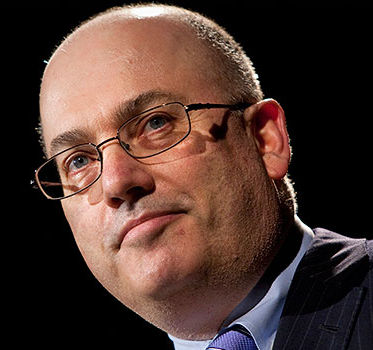The Securities and Exchange Commission has filed charges for failing to supervise senior employees against Steven Cohen, the Great Neck native whose hedge fund SAC Capital Advisors was hit with a record $600 million insider trading settlement in March. And according to reports from the Wall Street Journal and New York Times, federal authorities are preparing to announce an indictment against SAC Capital itself, in what would be a rare criminal prosecution of a large company.
The SEC’s administrative charges, which will be heard before an SEC judge and carry potential penalties ranging from fines to prohibitions against future work in the financial industry, are the first legal action taken directly against Cohen. While traders working directly under Cohen are facing criminal insider trading charges, Cohen has thus far not faced prosecution for what the SEC describes as illegal trades worth more than $275 million.
Anonymous law enforcement sources told the New York Times that the FBI and federal prosecutors in New York would announce criminal conspiracy charges against SAC Capital this week. Cohen himself is not expected to be charged.
“Hedge fund managers are responsible for exercising appropriate supervision over their employees to ensure that their firms comply with the securities laws,” said Andrew J. Ceresney, co-director of the SEC’s Division of Enforcement, in a statement. “After learning about red flags indicating potential insider trading by his employees, Steven Cohen allegedly failed to follow up to prevent violations of the law. In addition to the more than $615 million his firm has already agreed to pay for the alleged insider trading, the Enforcement Division is seeking to bar Cohen from overseeing investor funds.”
The SEC’s legal filing alleges that Cohen failed to prevent traders Matthew Martoma and fellow Great Neck native Michael Steinberg, both of whom are facing criminal charges, from making illegal trades despite being in possession of “highly suspicious information” about their activities.
“Cohen failed to take reasonable steps to investigate and prevent such violations,” wrote the SEC’s Division of Enforcement in its legal filing. “Instead, faced with red flags of potentially unlawful conduct by employees under his supervision, Cohen allowed his traders to execute the recommended trades and stood by while the portfolio managers traded in the portfolios they managed.”
An SAC Capital spokesman told the New York Times that Cohen acted appropriately and would contest the charges.
Steinberg, a 40-year-old Great Neck native and Great Neck North High School alumnus, was arrested by FBI agents outside his Manhattan apartment building in March. Cohen, who also graduated from Great Neck North High School, has not been hit with any criminal charges, but according to media reports it’s not for lack of trying – a detailed Vanity Fair article in June portrayed Southern District New York U.S. Attorney Preet Bharara as the Ahab to Cohen’s Moby Dick, and described Cohen as the central figure of seven years of investigations that have led to convictions or confessions from 71 people.
According to the SEC filing, Cohen directly supervised Martoma and Steinberg as they conducted illegal trades.
Cohen allegedly had information that Martoma may have committed insider trading in the short-selling of stock from the pharmaceutical company Elan and Wyeth, but did nothing to stop it.
The SEC also alleges that Martoma held a 20-minute phone conversation with Cohen after receiving inside information of a less-than-promising drug trial, after which Cohen approved the sale and shorting of Elan and Wyeth stock without investigating whether Martoma had inside knowledge.
The SEC’s complaint also alleges that Cohen failed to investigate the 2008 selling of Dell shares despite receiving e-mails from employees at SAC subsidiary Sigma Capital that professed insider knowledge of Dell’s upcoming financial results.
Steinberg, a portfolio manager at Sigma Capital and Jon Horvath, a Sigma research analyst, allegedly sent an e-mail discussing Horvath’s obtaining of early Dell profit information and forwarded that e-mail to Cohen.
Minutes after receiving the e-mail, Cohen allegedly began to sell his $11 million in Dell stock, according to the filing.
Dell’s stock dropped sharply after the public release of its financials and Cohen allegedly e-mailed Steinberg “Nice job on Dell.” Cohen avoided $1.7 million in losses by selling the Dell shares, according to the SEC filing.



